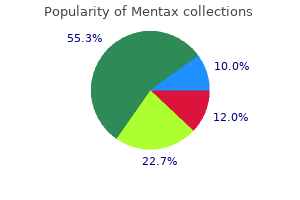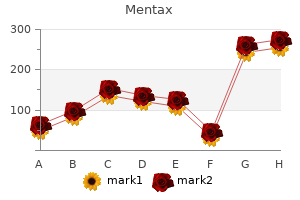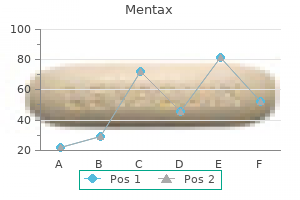"Mentax 15gm cheap, fungus testing lab".
J. Umbrak, M.S., Ph.D.
Program Director, Oklahoma State University Center for Health Sciences College of Osteopathic Medicine
Stilles Land (Silent Country, Andreas Dresen, 1992) Claudia comforts Kai after his run-in in a tavern. As theater manager Walz informs them, they are to have a new director: the talented twenty-six-year-old Kai Falke from Berlin. His problems are compounded by his belief that theater needs to mirror contemporary times. Thus Kai continuously reinterprets the play, each time revising the roles of its actors and even the stage design. The increasingly insecure actors become, however, more interested in the changing times than in the changing play. Four days later, Claudia returns to Anklam with a new boyfriend: Thomas, a young man from West Berlin also involved with theater. Despite having produced several excellent shorts as a film student, most of them documentaries, there was no compelling reason for Dresen to make it in the film world of the new Germany. In the interests of spontaneity, he filmed entire productions without a script-for example, Halbe Treppe (Grill Point, 2002) and Halt auf freier Strecke (Stopped Stilles Land 251 on Track, 2011). Again and again, he publicly states the benefits of the long periods spent on documentary films and praises the careful attention to planning all aspects of a film, including apparently insignificant details, inculcated at the Potsdam-Babelsberg film academy. He strongly disapproved of instrumentalizing film for ideological purposes-for instance, for depicting conflicts at a workplace in order to resolve them with the intervention of optimistic working-class heroes who promote ethical behavior, eradicate worker alienation in the industrial process, and of course also increase worker productivity. By August 1989, Dresen questioned not only the tenets of Socialist Realism but even the term "Socialism," noting that the Socialist label had lost its meaning, for it was being applied to a large number of completely disparate political systems. He could no longer follow such an ideology, Dresen added, or, for that matter, any other ideology either (Dresen 1993, 29091). Despite his critical social and political stances in his student essays, Dresen was never seriously chastised in his courses, and his student films (most of them documentaries) continued to be promoted. Only Was jeder muss (What Every Man Must Do, 1988), a film emphasizing boredom and senselessness in the East German army, received so much criticism that it was deemed best to remove it from circulation. Completed before the fall of the Wall (but distributed only in 1990), it shows how time stands still: literally at a railroad station where the hands of the clock have 252 German Culture through Film stopped moving and figuratively when not trains but movies and dreaming provide the only escape from a constricted environment. The oppressive surroundings, the silence, the standstill, the senseless waiting-all these resurface in Silent Country. Filmed soon after the fall of the Berlin Wall, Shortcut to Istanbul features a Turkish protagonist who wants to return to Istanbul as quickly as possible but lacks the funds for the trip. He plans to earn his money by working in West Berlin and to save it by living cheaply in East Berlin-in the apartment of a girlfriend he has yet to acquire. Impressed by the short blackand-white, neorealist feature film, the producer Wolfgang Pfeiffer offered to help Dresen create his first full-length feature film. When Pfeiffer asked Dresen and Laila Stieler, who was to coauthor the script, to volunteer ideas, Dresen suggested creating a story based on Wende-aspects that had ruptured their own personal lives (Dresen 2011, 345; Abel 2009, 16). He emphasized that they had no desire to replicate big demonstrations or other Wende-events that news programs had already covered superbly. Their research soon resulted in a script for Silent Country, now considered by wellinformed people the most authentic film on the Wende. Given that other Wende-films are laborious attempts to recreate a more or less vanished past, it is surprising that Silent Country is often bypassed in considerations of Wende-films. By contrast, he touts Silent Country as an honest film and as such a genuine document of the Wende-period. He is convinced that its honesty and contemporary resonance compensate for its technical deficiencies, such as a certain disjointedness that could have been eliminated had he been courageous enough to take more risks with his first feature film. There, however, the Wende is more the reverberation of a monumental event than the event itself. Yet what good is a Stasi official so unsettled by national changes that he loses his bearings completely? In its strange mediocrity, grey, not black and white, dominated (Schьtt 2013, 164). One day things were forbidden, the next day they were permitted; one person was not allowed to express the truth in writing, another-more radical and forceful- was waved on without restrictions. The idea was to eliminate all reliable criteria for behavior so that no one would be able to deduce any principles for action. This pervasive arbitrariness held people in check, causing them to be on their guard constantly (Schьtt 2013, 157). In Silent Country, theater manager Walz best represents this kind of guarded individual.



Ethics, Accountability, and Cost-Benefit Analysis in Legal Research, 4 Accountability in Research 115 (1995) (co-author Susan Johanne Adams). Loudenslager, Michael Allowing Another Policeman on the Information Superhighway: State Interests and Federalism on the Internet in the Face of the Dormant Commerce Clause, 17 B. Cover Me: the Effects of Attorney-Accountant Multidisciplinary Practice on the Protections of the Attorney-Client Privilege, 53 Baylor L. Lysaght, Pamela Writing-across-the-Law-School Curriculum: Theoretical Justifications, Curricular Implications, 2 J. Integrating Technology: Teaching Students to Communicate in Another Medium, 10 Leg. Successful Legal Analysis and Writing: the Fundamentals (West 2003) (co-author Bradley G. Opening Remarks for Erasing Lines: Integrating the Law School Curriculum Conference, 1 J. Fitzgerald: the Lower Courts Implement the New Standard for Qualified Immunity under Section 183, 132 U. Majette, Gwendolyn Roberts Access to Health Care: What a Difference Shades of Color Make, 12 Annals Health L. Malmud, Joan Defending a Sentence: Judicial Establishment of Sentencing Entrapment and Sentencing Manipulation Defenses, 145 U. Margolis, Ellie Teaching Students to Make Effective Policy Arguments in Appellate Briefs, 9 Persps. Beyond Brandeis: Exploring the Uses of Non-Legal Materials in Appellate Briefs, 34 U. Student Evaluation of Teacher Performance and the "Legal Writing Pathology": Diagnosis Confirmed, 5 N. Shakespeare in Law: How the Theater Department Can Enhance La wyering Skills Instruction, 8 Persps. Effective Assessment: Detailed Criteria, Check-Grading, and Student Samples, 14 Second Draft (newsltr. Matthews, Joan Leary Hard to Get to Compromise on a Two-Stroke Engine, Albany Times Union D3 (Nov. Dog Owners, Not Breeds, Are to Blame for Attacks, Albany Times Union E3 (March 16, 2003) (co-author Helene G. Siting Mining Operations in New York-The Mined Land Reclamation Law Supersession Provision, Albany L. Clean Water/Clean Air Bond Act-Opportunities for Municipalities to Upgrade Drinking Water Systems, Footnotes (Co. Zero Tolerance: Quality of Life and the New Police Brutality in New York City (Andrea McArdle & Tanya Erzen eds. Introduction, in Zero Tolerance: Quality of Life and the New Police Brutality in New York City (Andrea McArdle & Tanya Erzen eds. No Justice, No Peace, in Zero Tolerance: Quality of Life and the New Police Brutality in New York City (Andrea McArdle & Tanya Erzen eds. An Interview with Derrick Bell: Reflections on Race, Crime, and Legal Activism, in Zero Tolerance: Quality of Life and the New Police Brutality in New York City (Andrea McArdle & Tanya Erzen eds. In Defense of State and Local Government Anti-Apartheid Measures: Infusing Democratic Values into Foreign Policymaking, 62 Temp. McDonnell, Thomas Michael Targeting the Foreign Born by Race and Nationality: Counterproductive in the "War on Terrorism"? Defensively Invoking Treaties in American Courts-Jurisdictional Challenges under the U. Joining Hands and Smarts: Teaching Manual Legal Research through Collaborative Learning Groups, 40 J. McGinnis, Doretta Massardo Prosecution of Mothers of Drug-Exposed Babies: Constitutional and Criminal Theory, 139 U.

Check all that apply Effective Date: 10/01/2018 a) Who conducts eligibility determinations? Effective Date: 10/01/2018 Assure by describing how the Lead Agency makes child care information systems available to public agencies in other states to the extent practicable and appropriate. State of Maine employees sign a confidentially agreement at the time of hire and complete New Hire Orientation training on Confidentiality. Authorization and Release forms must be signed by Parent to release information outside of Lead Agency. As part of the Plan development process, Lead Agencies must consult with the following: (1) Appropriate representatives of units of general purpose local government-(658D(b)(2); 98. This consultation should be done in a timely manner and at the option of the Indian tribe(s) or tribal organization(s) (658D(b)(1)(E)). Effective Date: 10/01/2018 a) Describe how the Lead Agency consulted with appropriate representatives of general purpose local governments. The State Administrator contacted each of the five tribes recognized in Maine; the Aroostook Band of Micmac Indians, the Houlton Band of Maliseet Indians, Penobscot Nation, Passamaquoddy Tribe at Indian Township and Passamaquoddy Tribe at Pleasant Point. A phone conferences took place between the State Administrator and the Penobscot Nation Administrator and between the State Administrator and the Pleasant Point Passamaquoddy Administrator. At a minimum, this description must include: Effective Date: 10/01/2018 a) Date of the public hearing. The public hearing was held at 2 Anthony Ave in Augusta and able to be viewed online video or telephone with Zoom. All comments were reviewed and addressed and then posted to the Lead Agencyїs Child Care webpage. Note: A Plan amendment is required if the website address where the Plan is posted is changed. Check all that apply and describe the strategies below, including any relevant website links as examples. This includes programs for the benefit of Indian children, infants and toddlers, children with disabilities, children experiencing homelessness, and children in foster care (98. Maine Page 13 of 259 this list includes agencies or programs required by law or rule, along with a list of optional partners that Lead Agencies potentially would coordinate with over the next 3 years to expand accessibility and continuity of care and to assist children enrolled in early childhood programs in receiving full-day services. Include in the descriptions the goals of this coordination, such as: - extending the day or year of services for families; - smoothing transitions for children between programs or as they age into school; - enhancing and aligning the quality of services for infants and toddlers through schoolage children; - linking comprehensive services to children in child care or school age settings; or - developing the supply of quality care for vulnerable populations (as defined by the Lead Agency) in child care and out-of-school time settings Check the agencies or programs the Lead Agency will coordinate with and describe all that apply. Plans to meet regularly and coordinate will continue to take place over the next 3 years to expand statewide accessibility and continuity of care and to assist children enrolled in early childhood programs in receiving full day services to assist Maine families. The Council meets every other month and works on goals and strategies to ensure access to family support and prevention programs. Check here if the Lead Agency has official representation and a decision-making role in the State Advisory Council or similar coordinating body. Describe the coordination goals and process, including which tribe(s) was consulted: the State Administrator contacted each of the five tribes recognized in Maine; the Aroostook Band of Micmac Indians, the Houlton Band of Maliseet Indians, Penobscot Nation, Passamaquoddy Tribe at Indian Township and Passamaquoddy Tribe at Pleasant Point. Phone conferences took place between the State Administrator and the Penobscot Nation Administrator and one between the Pleasant Point Passamaquoddy Administrator. Coordination of a future in-person meeting between the State Administrator and tribal Administrators are being organized N/A-There are no Indian tribes and/or tribal organizations in the State. In addition, the Lead Agency attends Head Start Directors meeting every other month to address the goals of the State, policies, and services provided through Head Start and examples being wrap-around care and extended hours of care. The Career Centers offer resources on job seeking, child care needs, and financial needs online, at Career Center events, and locations. Maine businesses gain access to a qualified workforce to succeed in the changing economy with the Competitive Skills Scholarship Program. Continued coordination will take place as the Departments share changes that occur with policy and procedure. This collaborative work between these entities will continue over the next three years. Maine Page 19 of 259 the following are examples of optional partners a state might coordinate with to provide services. State/territory/local agencies with Early Head Start - Child Care Partnership grants.

Syndromes
- What does the lump look like?
- You may need to fill prescriptions for pain medicine before surgery.
- Eye swelling (conjunctivitis)
- Hematoma (blood accumulating under the skin)
- Fever
- Acute inflammatory disease
- Type of symptoms the person is having
- Family history of the disease

In 1708, Calib Heath-cote, a New York colonist seeking a contract from the British Board of Trade to supply naval stores to England, wrote that his neighbors "were already so far advanced that three fourths of the linen and woolen used, was made amongst them. Dudley replied that Americans would be more than happy to buy and wear goods made in England if they could pay for them. But since they could not earn enough money from chopping wood and sawing lumber, they were forced to make and sell their own goods, leaving those that were made in Britain to more affluent New Englanders. The event which ultimately transformed the colonies from part-time household producers of clothing to fulltime manufacturers, and caused more than one ulcer in the British business community, was the arrival in Boston in 1718 of a number of professional spinners and weavers from Ireland. Although colonial women had been spinning their own thread for some time, their expertise was nowhere near that of professional European craftsmen. When these newcomers landed in Boston, the women of the town asked for advice on how to make better cloth. The whirr of spinning wheels soon filled the air from file:///I /drugtext/local/library/books/marihuana/4. The new law promulgated by Parliament did more to crystalize opposi-tion to the import and consumption of British goods in the colonies than did any other single measure. Businessmen refused to purchase any products made in England and colonists agreed not to wear any clothing except that manufactured domestically. In New England, the campaign not to buy British goods was led by a group of women who called themselves the Daughters of Liberty. To meet the expected demand that a boycott against English goods would create in the colonies, the Daughters turned to "spinning bees," as the "spinning crazes" were now called. Between 1766 and 1771, women across New England met in churches, meeting halls, private homes, and anywhere else that was available, to spin in groups. Speaking of one such gathering held in Providence, Rhode Island, the Boston Chronicle on April 7, 1766, wrote that the women gathered there "exhibited a fine example of industry, by spinning from sunrise until dark, and displayed a spirit for saving their sinking country, rarely to be found among persons of more age and ex-perience. Production of cloth materials increased in every town and village, and it was not long before there was more than enough homemade cloth to clothe anyone who wanted American-made garments. In Philadel-phia, a market was opened especially for the sale of domestic fabrics. Even as far as South Carolina, domestic production of fabrics increased markedly as the spirit of resistance filtered down from New England to the southern colonies. As a result of these spontaneous gatherings, the colonists became self-sufficient in clothes. When the Revolution came and textile materials from England were completely cut off, the colonists were not faced with the kind of predicament they might have been in had they not learned to manufacture their own household goods. Until trade relations could be started with other countries, the colonists were able to care for their own needs and were generally able to supply uniforms and basic clothing for their army. Once they were sure of food, the colonists could devote their efforts to raising raw materials for the war effort. Prior to the outbreak of hostilities, hemp sold for about twenty-seven to thirty-five shillings per hundredweight. There were no fewer than eighteen "ropewalks" in Virginia transforming raw hemp fiber into badly needed rope during the Revolution, and there was still a shortage of rope. These ropewalks and various sailmaking factories sprang up all over the colony to supply the needs of the colonial navy. So important were rope and sail to the war effort that any man who worked at these jobs for at least six months was excused from military duty for the duration of the war. In April 1781, when Benedict Arnold led a force of British infantry up the Jones River and penetrated as far as Richmond, one objective of his mission was the "Public Rope Walk" in Warwick, which he destroyed. Although hemp was a basic ingredient in the inven-tion of paper, other materials such as flax and cotton had long since replaced it. However, in 1716, a pamphlet was published on the art of papermaking entitled Essays for the month of December 1716, to be continued monthly by a Society of Gentlemen for the benefit of the people of England, which urged papermakers to return once again to hemp. Detailed in-structions were given as to how to prepare the hemp for the job and paper mill owners were invited to plant hemp in their yards so that they would have their own supplies of raw material.

